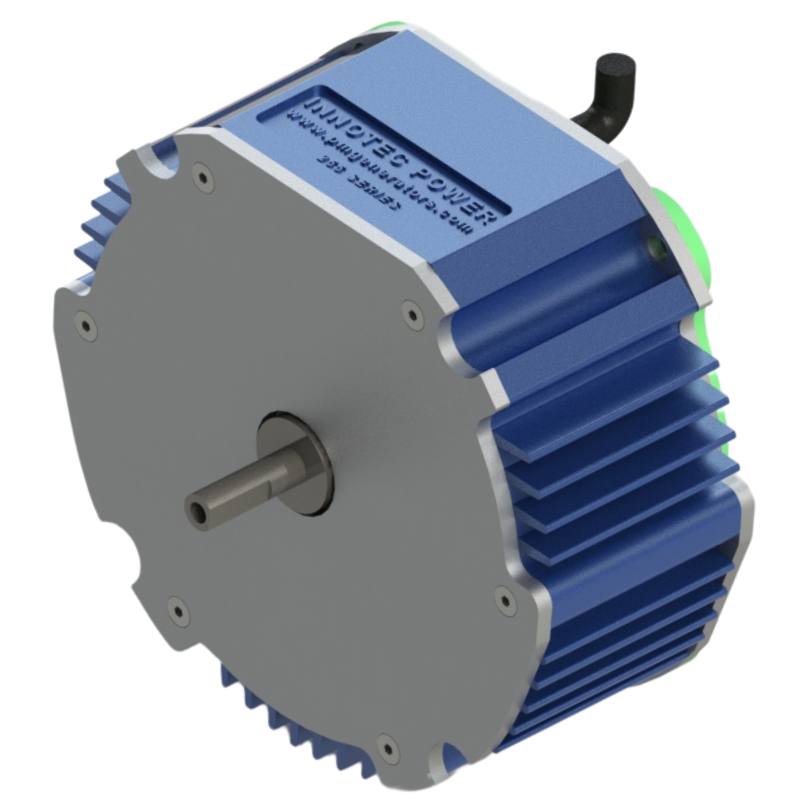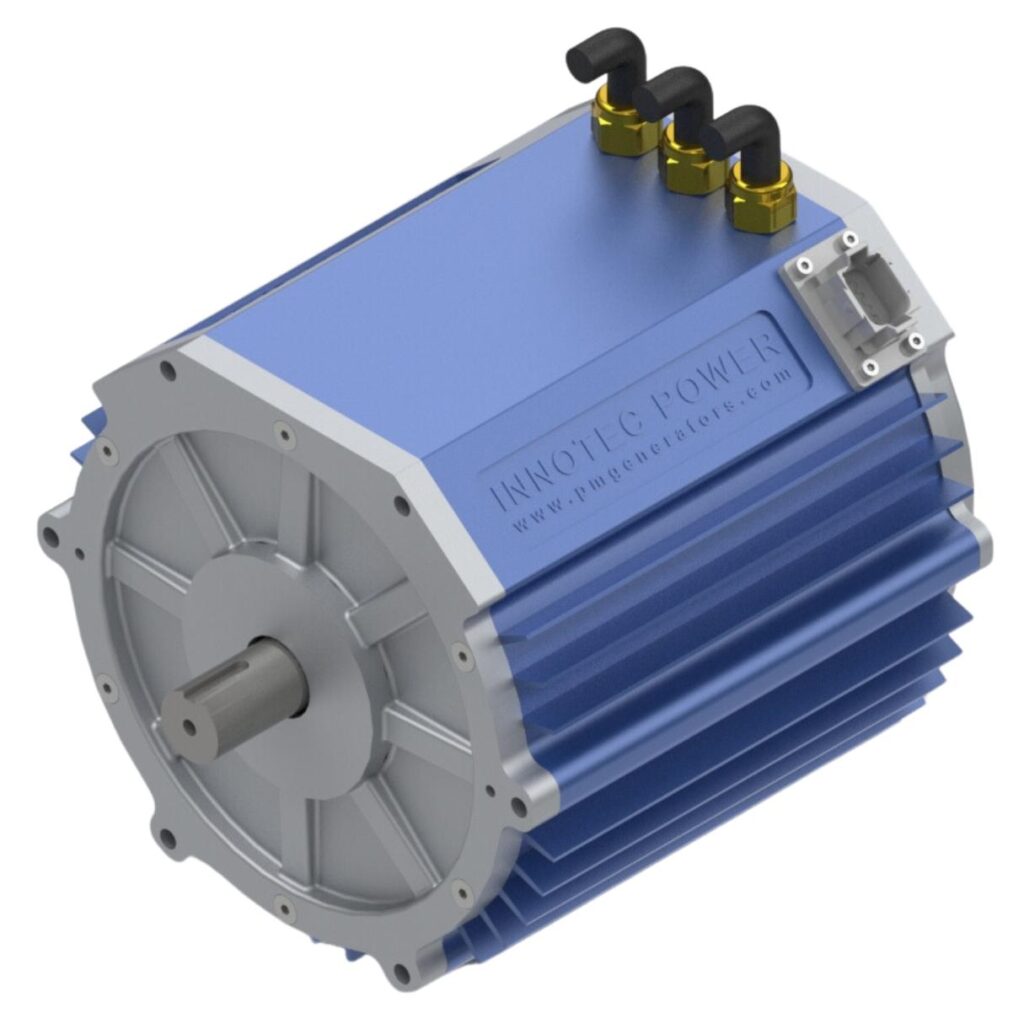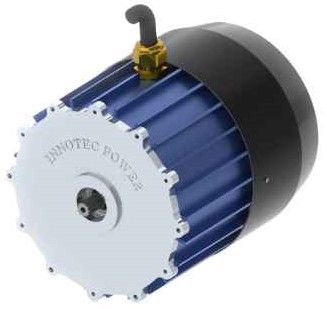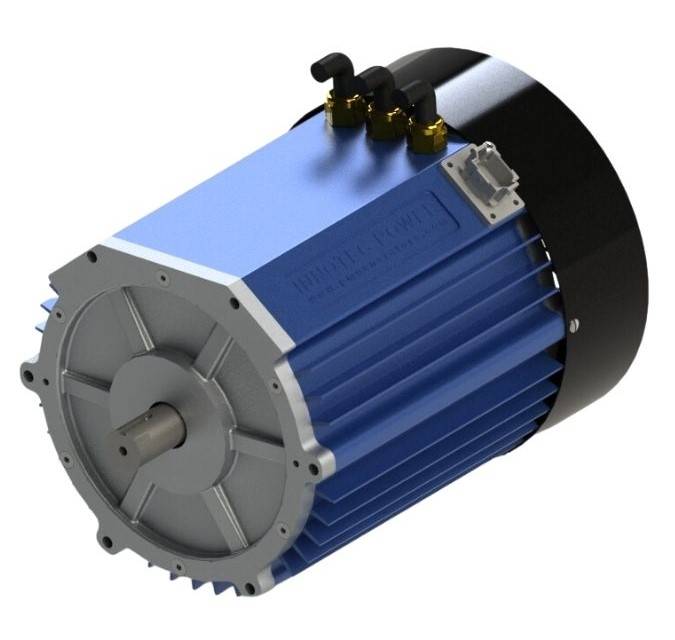72 Volt BLDC Motor Standard Offerings
255-BES72-045
Speed: 2800 RPM
Voltage: 72 VDC
Torque: 12.1-55.6 Nm
Type: SPM
255-CZS72-050
Speed: 2400 RPM
Voltage: 72 VDC
Torque: 14.7-67.3 Nm
Type: SPM
255-EZI72-120
Speed: 3700 RPM
Voltage: 72 VDC
Torque: 15.7-48 Nm
Type: IPM
255-HEI72-120
Speed: 2500 RPM
Voltage: 72 VDC
Torque: 26.7-81.6 Nm
Type: IPM
255-HEI72-160
Speed: 3200 RPM
Voltage: 72 VDC
Torque: 26.7-81.6 Nm
Type: IPM
255-HZ72-240
Speed: 3800 RPM
Voltage: 72 VDC
Torque: 40.1-118.2 Nm
Type: SPM
255-AZZI72-160
Speed: 2900 RPM
Voltage: 72 VDC
Torque: 31.7-73.8 Nm
Type: IPM
255-AZZI72-240
Speed: 4300 RPM
Voltage: 72 VDC
Torque: 31.4-73.6 Nm
Type: IPM
72 Volt Motor Manufacturer
Innotec designs and manufactures 72V motors (72V BLDC, 72V PMAC). The 72V motors begin sub 1kW and go up to 60 kW. The motors are used as auxiliary motors and drive motors for mobile equipment and stationary equipment. They can be coupled with Innotec’s controllers to give constant speed or can be dynamically controlled for full traction and drive applications.
As our line and offerings of motors are growing, it is best to contact us to find the right solution for your application.
We like to start with electrical/power requirements
- Power Required (HP or kW) and the
- Speed Rating
Uses of 72 Volt Motors
Some of the typical uses include OEMs switching from low voltage 12V/24V systems to 72V.
Higher voltage motors tend to be more efficient and have a higher power-to-weight ratio than lower voltage motors. This makes them a good choice for applications where weight is a concern, such as electric bicycles or small electric vehicles and power is relatively still small. Going from a 12V to a 72V motor / power system will be a huge difference in design that would see quick benefits.
72 V systems are common in electric forklifts, electric golf carts, ground support equipment, agriculture and construction equipment. Some big power applications will use a higher voltage motor for the drive train and keep 72V for auxiliary applications (such as electric buses or heavy-duty electric vehicles).
72V BLDC Motors Offerings
Innotec’s 72 volt motors allow more power and reduce heating concerns versus the lower voltage variants. Innotec’s 72V units go up to 60 kW of continuous power output. These units can be built as a liquid cooled unit, fan cooled or passive cooling.
The 72V PMAC motors utilize permanent magnets to maximize the efficiency of the motors. Innotec’s rotors pre-excitation from the magnets is designed to maximize efficiency benefits. These motors are known for their high power density and efficiency.
72V Motor Sensor Feedback
Innotec primarily uses hall sensors or sin-cos sensors in all of the motors. The decision will depend on the application and intended use.
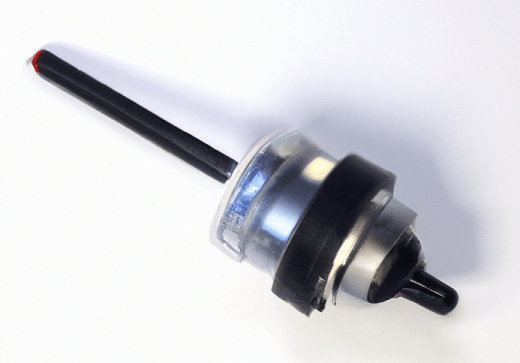
Hall sensors and sin-cos sensors are both commonly used as sensors for PMAC (permanent magnet alternating current) motors. The choice between the two types of sensors will depend on the specific requirements of the application and the desired level of performance.
Hall sensors are magnetic sensors that are used to detect the position of a magnetic field. They are typically used to measure the position of the rotor in a PMAC motor and are often used in low- to medium-performance applications. Hall sensors are simple and inexpensive, and they are widely available. However, they are not as accurate as other types of sensors and may not be suitable for high-precision applications.
Sin-cos sensors, also known as resolver sensors, are electromechanical sensors that use a rotating transformer to measure the position of a rotor. They are more accurate than Hall sensors and are often used in high-performance applications where precise control is required, such as robotics and industrial machinery. However, sin-cos sensors are more complex and expensive than Hall sensors and may not be suitable for all applications.
Some of the applications where our motors go are very harsh environments and some have a high importance for replaceability.
In general, sin-cos sensors are considered to be a better choice for PMAC motors in applications where high precision and control are required, while Hall sensors may be a more cost-effective option for lower-performance applications. The specific choice will depend on the specific requirements of the application. We make this decision with the customer to see how pricing/cost/precision/durability and servicing affect the customer’s choices.
Innotec Power: Partner to OEMs
Innotec holds its own IP for magnetic rotor design and fabrication. The company supplies Fortune 100 companies and works closely to provide a unique and reliable product that matches OEMs’ requirements.
We fully load test all of our produced designs and can quickly also offer a custom motor based on an exact requirement. These include electrical and performance testing under different temperature and load conditions.
Reach out to start a discussion to take your project further.

